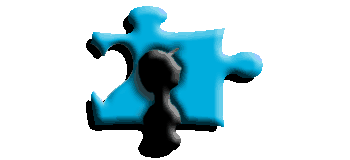Learning gains for autistic children
La Trobe researchers achieve a breakthrough in helping overcome learning difficulties in children with autism.
They have found that learning difficulties that affect young children with Autism Spectrum Disorder (ASD) can be successfully addressed through targeted educational programs in regular childcare.
'Children on the spectrum have a lot of trouble learning from others. They have trouble imitating, participating in joint activities and making eye contact, essential skills in the learning and teaching process,' autism researcher Dr Vivanti said.
Dr Vivanti said the team at La Trobe had used an intervention called the Early Start Denver Model(ESDM), which targets these learning difficulties and aims to bring the child back into the social loop so they can learn from others the way children without autism do.
Research conducted in the US indicates that the program is effective in the context of intensive individual home treatment (15+ hours per week). However, as standard community services often lack the resources needed to support this kind of model, very few families currently have access to this intervention.
The study carried out at the La Trobe University Victorian Autism Specific Early Learning and Care Centre in collaboration with the Olga Tennison Autism Research Centre and the MIND Institute at UC Davis addressed this, documenting the feasibility and effectiveness of the ESDM delivered in the context of a community childcare setting.
As opposed to the US study, the program at La Trobe was implemented using regular childcare teachers and a child-staff ratio of 1:3.
The study measured the outcomes of 27 preschoolers with ASD receiving 15–25 hours per week of ESDM therapy over 12 months, compared to those of 30 peers with ASD undergoing a generic intervention program delivered in a similar community long-day care service.
While children in both groups made progress, those receiving ESDM showed significantly higher gains in language (20 DQ points versus 10 in the control group) and cognition (14 DQ points, versus 7 in the control group).
There was variability in the gains made by children receiving the ESDM, with children who had more spontaneous imitation, functional play and joint attention skills showing the most sizeable cognitive gains.
This study indicates that even with the adaptations of delivering the program in a childcare group environment instead of intensive individual home-based treatment, the ESDM has positive effects on development of young children with ASD.
Dr Vivanti said that by targeting skills that are crucial for early social learning, such as imitation, joint engagement, non-verbal communication and eye-contact, some of the biologically-based cognitive and communicative difficulties in ASD can be addressed at this early stage of development.
Researchers will continue to monitor the children from the study as they enter a school environment.
The findings have been published in the prestigious journal of Autism and Developmental Disorders
Media Contact
Catherine Garrett
9479 6565 / 0418 964 325

Common Gene Variants Account for Most of the Genetic Risk for Autism
Nearly 60 percent of the risk of developing autism is genetic and most of that risk is caused by inherited variant genes that are common in the population and present in individuals without the disorder, according to a study led by researchers at the Icahn School of Medicine at Mount Sinai and published in the July 20 edition of Nature Genetics.
Study Links Specific Gene to Autism Subtype
This will be a game changer in the way scientists are researching autism," says lead author Raphael Bernier, clinical director of the Autism Center at Seattle Children's Hospital.
They are all so different’: Autism requires variety of treatments
JOHNSTOWN — Tina Dallape heard the small child’s voice say, “Want some,” but she knew her 3-year-old daughter, Sophia, was not in the room.
Learning gains for autistic children
La Trobe researchers achieve a breakthrough in helping overcome learning difficulties in children with autism.
Autism Risk Half Genetic, Half Environmental
Although autism spectrum disorder (ASD) is known to aggregate in families, individual risk is poorly understood. Even the heritability of ASD, a broad and seemingly straightforward population measure, is uncertain. In evaluating heritability, several studies have focused on twins, particularly pairs in which at least one twin had a diagnosis of ASD.
UC San Diego Autism Research Described as
UC San Diego scientists say they've made a breakthrough in autism research. Researchers found using stem cells can help them find the right drug to treat the disorder.
Autism linked to overconnectivity in brain networks
HealthDay News -- Adolescents with autism spectrum disorder (ASD) show atypically increased functional connectivity involving two brain networks that are crucial for social cognition, according to researchers.
How the Family Dog Can Help Kids With Autism
WEDNESDAY, April 16, 2014 (HealthDay News) — Children with autism may find the “unconditional” love of the family dog a real help, a small new study finds.
Drama can help autistic children improve their symptoms, a study has shown
Children with autism who take part in drama and performance activities may be able to improve their communication and interpersonal skills, a study has found.
UCLA professor studies infants’ brains for autism research
Rates of autism are on the rise, with 1 in 50 American children being diagnosed as affected by the disorder.


